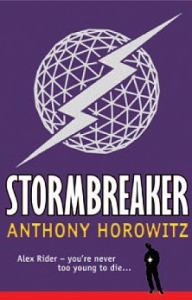I’ve read several articles this week about the importance of a book’s beginning and how to write a compelling first line.
This is interesting to me as a writer because I (naturally) want to captivate readers, and it’s fascinating as a reader because I absolutely agree that the opening of a book is crucial: if I’ve liked a novel enough to pick it up, I need to be convinced by the first few sentences that it’s going to be a good read and worth my investment of time and money, otherwise I’ll put it straight back down and find something I like better.
Most writing advice is to start with a “hook” – snare your reader and compel them to read on – but opinions of what makes a good hook vary.
I can only speak for myself, but the key element that drives me to keep on reading is to make me CARE about the character or characters I meet in those scant few lines. In a short space of time (and words), that’s not easy, but for me it’s absolutely vital. Put it this way: if I don’t care, why should I want to spend more time with these people?
I almost never read crime or thriller novels because I find too many of them start with a dramatic event with the premise that this will be intrinsically gripping. I’m sorry, but a car chase/car crash or even a murder might be dramatic, but until I care about who’s being chased, injured, or killed (or killing!) it leaves me cold. Get me to care about the person, then I’ll care about the outcome of the car chase/crash/murder – and read on to find out how it ends.
How to make the reader care is the next million-dollar question, but I believes it lies in the description of what’s happening and who it’s happening to.

A great example of this done well is Anthony Horowitz’s Stormbreaker, which introduces us to teen spy Alex Rider. The opening line is: “When the doorbell rings at three in the morning, it’s never good news.” Now, that’s a fabulous sentence in itself, with enough intrigue to carry me through the next couple of paragraphs, where it’s the description of Alex in the third paragraph that sells him to me: “His eyes were brown and serious.” This is a fourteen year old boy, and the adjective serious strikes an odd chord. A 14 year old shouldn’t be serious – what’s he got to be serious about? (Well, lots already when we discover his backstory, and he gains more as the books unfold). I’m sure there’s more to the magic than just that, but it’s that single word that made Alex come alive for me and propelled me to read the book (and then the next, and then the next…).
Once I care, I’m sold.
How about you – is it important to care about a character, or are other elements of the story of more interest?
6 responses to “Who cares?!”
In my opinion what makes something interesting/compelling/dramatic is incredibly subjective. Instead, I want to see a reason or motive for investing my time with the characters. I recently began reading the All Souls trilogy and almost stopped because – in twenty pages of reading – I just didn’t care what happened.
LikeLike
You’re right – if there was one thing that made someone read on all books would use that technique – and we’d soon get bored of it!
I’m intrigued – did you persevere with the All Souls books – and were they worth it?
LikeLike
I’ve only finished the first two books, but so far I’d give the trilogy two stars overall. I don’t hate it, but I wouldn’t recommend it to someone unless they’d previously expressed interest in that specific genre. If pressed, I’d describe it as an amalgam of The Historian and Twilight – for whatever that’s worth.
LikeLike
And that’s fascinating, too – I wouldn’t keep on with a 2 star series – too many other books to try!
LikeLike
Good post!
LikeLike
Thank you kindly!
LikeLiked by 1 person